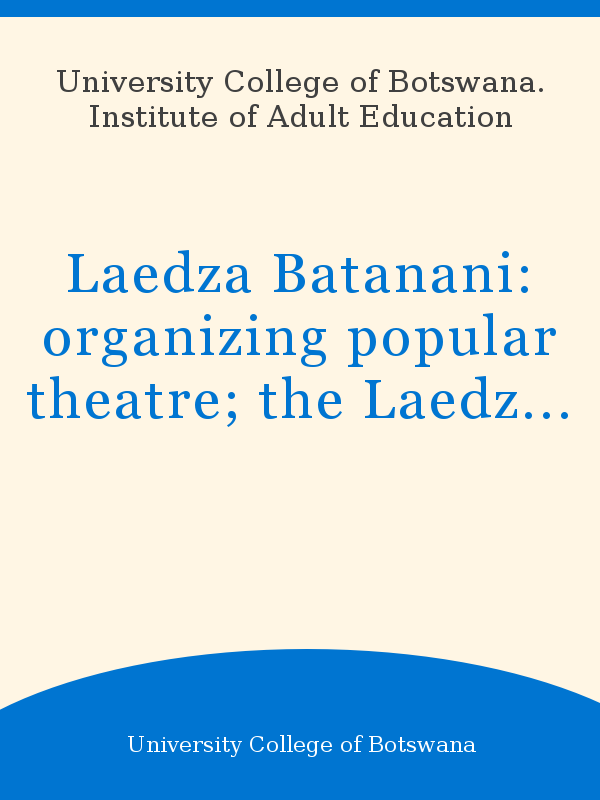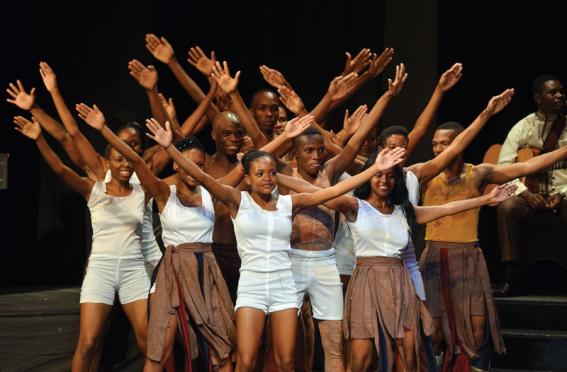Popular theatre begun in Botswana in 1974 with a programme that was called 'Laedza Batanani'. The idea came from Ross Kidd, an expatriate adult educator working for the University in the northern part of the country (the Bokalaka). The origins are described by him in the first publication on popular theatre in Botswana.
Laedza Batanani developed out of a concern to deal with the problems in the Bokalaka of limited community effort, low participation in public meetings, and apathy or indifference to government extension programmes. There was a desire to make a fresh attempt to involve people in their own development, to substitute self-reliance, participation. and co-operative action for over-dependence on government and excessive individualism.
Goals of the Popular Theatre
The twin goals of participation and self-reliance called for a way of bringing people together to discuss their problems, agree on changes that need to be made and then take collective action. This goal of people meeting and working together is summarised in the slogan 'Laedza Batanani': 'The sun is already up. It's time to come and work together'. A forum of this sort of activity has traditionally been provided by the `kgotla'. What was away of breaking through the indifference towards kgotla meetings, helping to revive this forum as a major focus for community decision making and action. It was felt that traditional methods used by extension workers were inappropriate for this task.
Extension workers are more concerned with providing services (e.g. health care, dehorning cattle) and information than with motivating people for active participation in their development. Their messages are often based on external prescriptions rather than a local assessment of local needs and demands. Their messages and workers seldom coordinated- each officer works in isolation preaching the narrow message of his own department.
Participation in the Theatre
Few participate in their programme. For example, the agricultural and health clientele are largely restricted to Master and Pupil Farmers and those who attend the clinic. Faced by these problems, Ross Kidd decided to experiment with an adult education method that would use theatre and small group discussion method that would develop a joint inter-agency approach to extension work. The idea of using folk media came from a UNESCO/IPPF conference in 1972 which had advocated the use of folk media in family planning communication programmes.
Popular theatre arose as an attempt to overcome specific problems in Botswana that were making adult education development policies ineffective. The thinking behind the experiment was shaped by the ideas on education and development that were current in the mid-1970's, particularly those expressed in the writings of Friere and Nyerere Some of the intellectual origins of popular theatre are therefore the same as those of participatory research.
For this reason, there are significant parallels between participatory research and popular theatre. However, popular theatre is not a research approach. It has evolved in the search for more effective adult education method and therefore lies within the broad tradition for adult education, which is a different historical tradition to that of social research.











0 Comments